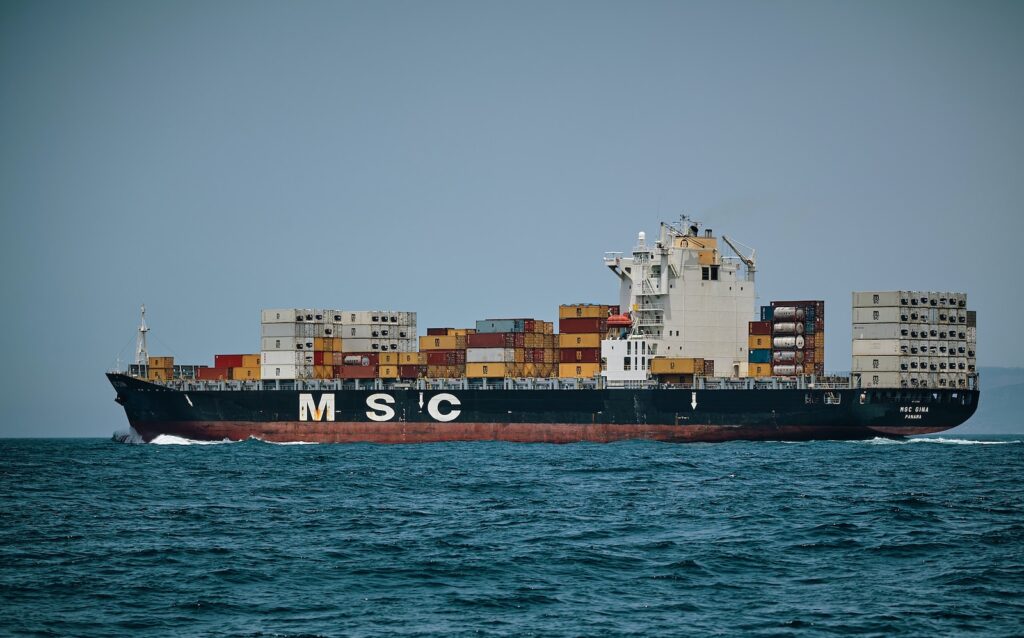I recently got a request from one of my subscribers (on 7th January 2024 – to be precise) to work on a post on how to ship products from Alibaba straight to Kenya, documenting the step-by-step process and giving approximate pricing on each step. For this reason, I did my research (mainly from my men on the ground) and my own experience. Therefore, this article is a documentation on how to buy and ship products successfully from Alibaba to Kenya.
Before we delve into the main points, let’s get definitions and a few things straight.
What is Alibaba?
Alibaba is a popular B2B (see description below) online marketplace based in China that connects manufacturers, wholesalers etc., to smaller-scale or non-specialized retailers across the planet. This online platform is owned by a business magnate Jack Ma and has operated since April 4th 1999.
A B2B business model is what sets Alibaba apart from Amazon. You see, B2B means “Business-to-Business”, where products or services are sold from one business to another, just like I mentioned earlier.
Amazon, on the other hand, is a B2C model i.e., “Business-to-Costumer” that connects businesses, retailers, SMEs, MSMEs etc., to clients or consumers.
| B2B Examples | B2C Examples |
| Alibaba | Amazon |
| AliExpress | AliExpress |
| DHgate | eBay |
| Trade India | Walmart |
| Global Sources | Jumia |
| Made-in-China.com | Kilimall |
| ThomasNet | Zalando |
The main difference between the two is that in Alibaba, you will have to purchase a Minimum Order Quantity, unlike in Amazon where you can buy a single product and ship it to Kenya.
With that out of the way, let’s delve into deeper definitions;
More Key Terms
- MOQ (Minimum Order Quantity) – This is the lowest quantity of a product a supplier is willing to sell. This is particularly important because many sellers offer attractive discounts on larger quantity purchases.
- Product Listings – These are detailed pieces of information about a particular product on Alibaba, including specifications, pricing, and other relevant details.
- Freight Forwarder – This is the company or organization that will facilitate the transportation of your products from the supplier (who is in China) to Kenya, and sometimes, to your doorstep.
- Free-on-board (FOB) Shipping – The supplier is responsible for all costs and risks associated with transporting the goods until the shipment reaches your freight forwarder.
- Cost, Insurance and Freight (CIF) – This means that the seller will cover the shipping costs and insurance required to transport the goods to the negotiated overseas destination port. This is applicable when you don’t use a Freight Forwarder for your transport. This rarely applies to Kenyans.
1. Getting Started
The first step is creating an Alibaba Account, and setting a strong password to prevent potential hackers from accessing your account.
2. Searching for Suppliers and Products

The Alibaba platform hosts thousands of suppliers and manufacturers located primarily in China. The key is finding ones that are reliable and offer the products you need at reasonable order minimums and prices.

When searching on Alibaba, you can browse by top product categories or use keywords to find listings related to your niche.
Once you find potentially relevant products, you need to vet the suppliers thoroughly.
How can you do this?

- *Most important – Check for reviews from past buyers. This background research is crucial to avoiding scams or subpar suppliers.
- Check how long they have been an Alibaba member.
- Check their response rate and processing times.
- Check for the trade assurance or verification statuses they have.

You’ll also want to compare suppliers and product listings by looking at the following:
- Minimum order quantity (MOQs)
- Pricing – can negotiate based on total order size
- Product quality rating (5 stars vs 3 stars etc.)
- Packaging options

NOTE: If you intend on making bulky or extremely large purchases, start by placing a few test orders first with new suppliers before spending on large bulk orders. This helps build trust and credibility between both parties. It also saves you from heartbreak.
3. Placing Your Order
Once you’ve identified reliable suppliers and products you wish to order, it’s time to lock in a deal.
The order process on Alibaba may seem intimidating initially, but simply involves:
- Messaging suppliers – Confirm their ability to meet your requirements related to order quantities, product customizations, and shipping to Kenya
- Negotiating pricing – As mentioned earlier, suppliers often provide discounts for larger MOQs; haggling politely can save you 5-10%.
- Securing shipping rate – Agree on incoterm (CIF or FOB etc.), confirm delivery companies and estimated costs. You will be confirming your shipping rates about the depot location of your freight forwarder in China. Get their addresses by either contacting them or visiting their website.
- Sending the order – Upload any necessary documentation, and pay deposit/full amount through site escrow services.
- Working with your freight forwarder – Once your supplier delivers your product to your freight forwarder’s address, you will now have to work with them to ensure that the product arrives in Kenya.
At this point, both Alibaba and the product supplier are out of the picture, unless the product is subpar or damaged.

4. Working with Freight Forwarders

Purchasing the products is only half the battle – you need to ensure seamless transportation for clearance into Kenya as well.
The suppliers may be able to assist with connecting you to freight forwarders they work with regularly who handle exports from China to Kenya. Alternatively, you need to find your forwarder – make sure to get several quotes first.
Seeing that this is the most important section of this article, I did my research and came up with a list of some of the most reliable freight forwarders in Kenya and their contacts.
I take a lot of time in researching and vetting online services for you. However, this shouldn’t be a reason for you not to do your own prior investigation and research before placing an order. Do your own due diligence before spending your money online.
Disclaimer by Author Carson Osoro| Freight Forwarder | Contacts |
| Salihiya Cargo & Shipping Agency | +254 722 859 680 |
| [email protected] | |
| Jamka Agencies | +254 202 434 287 |
| Hart Logistics | +86 400 0369 586 |
| [email protected] | |
| Firstlane Logistics (K) Ltd | +254 788 309 344 |
| [email protected] | |
| Acefreight Logistics Limited | +254 724 573 892 |
| +254 786 784 762 | |
| +254 763 573 892 | |
| [email protected] | |
| Aquantuo | Currently not shipping from China |
Key responsibilities of the freight forwarder include:
- Receiving cargo from suppliers’ factories/warehouses.
- Ensuring all import/export documentation is complete (commercial invoice, packing lists etc.)
- Preparing the items for shipping – palletizing, container packing.
- Booking cargo space with ship operators for transportation by sea or air.
- Tracking status during transit until arrival at the destination port.
- Clearing cargo through customs at the Kenya border.
- Facilitating final delivery to your location.
Sea shipments take 30-45 days typically while air shipments are much faster at 1-2 weeks but come at 3-4x the cost. You can save ~15% by arranging land transport for the final delivery leg from Mombasa seaport.
Charges from Freight Forwarders
Different freight forwarders have different ways of cost calculation. However, the most common methods include direct measurement of weight in Kilograms, or Cubic Metres (CBM), i.e., $10-$20/Kg or $200-$300+ per CBM.
For more context, see how we shipped Boba Cups to Kenya and to get clarity on purchase and pricing.
5. Receiving and Checking Your Shipment
The final step involves ensuring the delivered shipment matches what you originally ordered from Alibaba.
Fully inspect and account for all items received against the commercial packing lists. Check for any damages or quality issues – these should be covered if the warranty is still active. If not, can negotiate with the supplier or file a claim with the delivery partner depending on where the faults occurred.
6. Common Mistakes to Avoid
First-time importers from Alibaba often run into problems related to:
- Not reading supplier reviews thoroughly or checking their verification status
- Getting duped into sending advance payment through risky methods vs recommended site escrow services
- Not properly negotiating shipping costs/terms resulting in hidden fees
- Failing to account for customs import duties (~25% extra in costs for Kenya) – If you work with a freight forwarder, they should do this for you and add it to your total cost pricing.
- Not inspecting deliveries closely enough upon arrival vs order receipts
7. Frequently Asked Questions
Q1. Does shipping get complicated with bulk orders?
A1. Not at all. Freight forwarders like Salihiya Cargo should consolidate your goods.
Q2. How do they ship to Kenya? By sea flight or by air?
A2. Most agents ship by air, some have sea shipping services for bulky goods. Air shipment usually takes about 2 weeks.
Q3. Should I opt for Sea or Air Shipping?
A3. This depends on how much you want to pay and how soon you want to receive the items. The sea is way slower but cheaper, but for heavy products, it should be the more economical method.
Conclusion
Ordering and shipping products from Alibaba to Kenya involves much more coordination compared to typical online purchasing through Amazon or domestic retailers. However, the potential savings and access to manufacturer-direct wholesale pricing make the extra effort worthwhile for the higher profit margins.
To recap the critical steps:
- Do in-depth research to find reliable, verified suppliers on Alibaba offering your needed products at reasonable minimum order quantities and pricing
- Lock in negotiated agreements covering order quantities, item cost, shipping rate and process, warranty terms etc.
- Leverage escrow services or Trade Assurance when paying deposits/full amount through Alibaba to protect against potential scams
- Carefully compare freight forwarders and account for all possible duties/fees when clearing through Kenya customs
- Thoroughly inspect shipments upon arrival against order receipts before releasing any final payments
While the guidelines provided should help you navigate the complexities of importing goods from China into Kenya, feel free to reach out for any other advice. With the right preparation and partnerships, Alibaba can serve as an extremely cost-effective supply source for your business’s retail or distribution needs.












